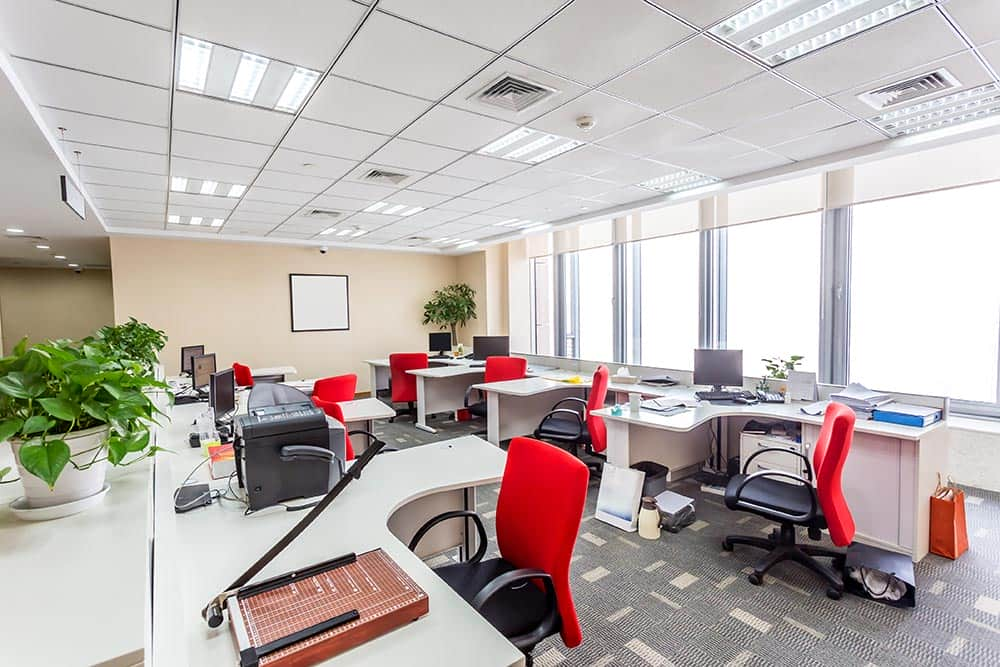Remember the hazy school-day joy of being told it was too hot and everyone could go home; those were the days! Nowadays, most modern buildings have installed air-conditioning units or smart insulation to keep the classrooms at a constant, practical and safe temperature. Every summer, at JP Air Conditioning, we receive the same plea for cooling help from businesses trying to operate with sweltering employees, all desperate to book an air-conditioning install. It has been proven that concentration levels dip as the UK temperature rises and trying to stay focused in a stuffy workplace becomes tough.
Working in hot temperatures
Although there is no legal maximum temperature in UK law, the World Health Organisation recommends 24°C (75°F) as a maximum for comfortable indoor working, with anything above 26°C as unacceptable. Employers are encouraged to “keep temperatures at a comfortable level”, this however is open to interpretation and many factories and workshops are often much hotter.
It is recommended that employers implement measures to prevent heat stress, just as they do in schools, such as providing adequate ventilation, shade, rest breaks and access to cool drinking water.
School closures
Of course, heat doesn’t only affect the workplace, but schools too. As a knock on effect, this could impact the ability for employees to work in the office, especially if childcare is needed last minute at home due to a school closure.
Employees do not have a statutory right to be paid if they must have an emergency day off with their children due to the heat. Although this can vary and some companies might offer paid time off to staff as a perk, so it is worth checking your contract.
Some of the general rules around heat and schools are stated as:
- Older schools may consider closing or implementing modified timetables if extreme heat poses health risks to students and staff. These decisions are usually made by local educational authorities, considering local weather conditions, the structure of the building and the well-being of the pupils and teachers.
- Schools follow the same rules as workplaces – this means there is a minimum temperature but no maximum temperature which would lead to a closure.
- There’s also no legal limit to class size – children between five and seven have a maximum class size of 30 – but it can affect the indoor temperature if more people occupy one room.
- The National Union of Teachers said special measures should be put in place to reduce temperatures as soon as staff complain about feeling uncomfortable. A report stated: “If in doubt, 26C should be used as the trigger for these measures.
- Other steps may also need to be considered such as closing classrooms which are unacceptably hot and teaching classes elsewhere; teaching outside; using the school hall if it’s cooler there, supplying cold water and ice lollies as a real treat!
- Parents should also make sure their kids are well equipped in a heatwave, with a hat and sunscreen if they are likely to be playing outdoors. A cold water bottle is also essential. Consider leaving one in the freezer overnight, allowing ice to melt gradually throughout the day, providing continuous cold water.
If your workplace is in need of an air conditioning service or installation, get in touch with our team. Give us a call on 02083331191 or send us an email at info@jpaircon.com.



